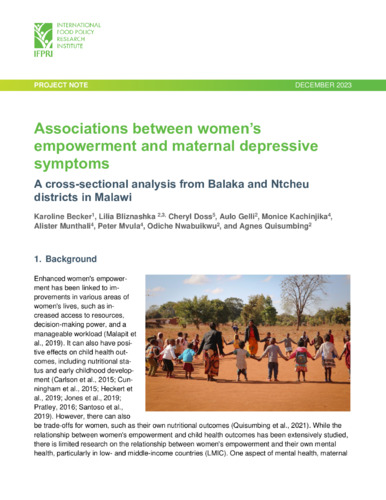Associations between women’s empowerment and maternal depressive symptoms: A cross-sectional analysis from Balaka and Ntcheu districts in Malawi
Abstract
Enhanced women's empowerment has been linked to improvements in various areas of women's lives, such as in creased access to resources, decision-making power, and a manageable workload. It can also have positive effects on child health out comes, including nutritional status and early childhood development. However, there can also be trade-offs for women, such as their own nutritional outcomes. While the relationship between women's empowerment and child health outcomes has been extensively studied, there is limited research on the relationship between women's empowerment and their own mental health, particularly in low- and middle-income countries (LMIC). One aspect of mental health, maternal depressive symptoms is prevalent in these countries and can have a negative impact on both the mothers and their children. In Malawi, Stewart et al. (2010) find that 30 percent of mothers of young children, attending a child health clinic grapple with depressive episodes. In this study, we explore the relationship between women's empowerment, as measured by the pro-WEAI, and maternal depressive symptoms, as measured by the 20 symptom Self-Reported Questionnaire (SRQ-20). The Pro-WEAI is particularly useful because it allows us to explore the relationship of various components of women’s empowerment with maternal depressive symptoms.

